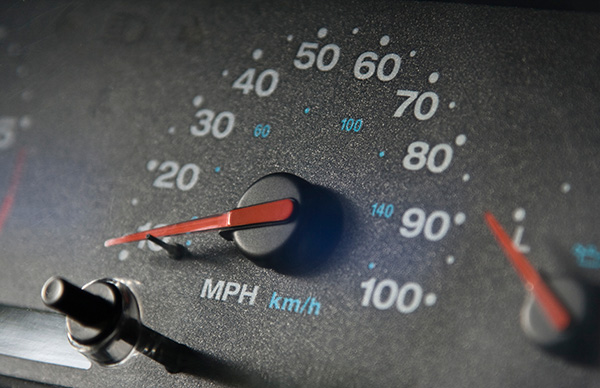
A malfunctioning speedometer isn’t just a minor annoyance—it can make driving more dangerous and put you at risk of speeding without realizing it. If your speed display suddenly freezes, jumps around, or drops to zero while you’re still in motion, something in your vehicle’s electrical or sensor system isn’t working as it should. From sensor failures to dashboard issues, there are a few common culprits behind inaccurate speed readings. Knowing what to watch for can help you get the problem fixed before it turns into a bigger safety concern.
Why Do Speedometers Stop Working or Act Up
In modern vehicles, speed data is collected by a vehicle speed sensor (VSS), usually located on the transmission. This sensor measures how fast the wheels are turning and sends that information to the car’s onboard computer, which then feeds it to the speedometer.
If that sensor malfunctions, becomes dirty, or fails completely, the system may receive bad data—or no data at all. That’s when your speedometer can:
- Drop to zero even while moving
- Get stuck at a certain speed
- Bounce or fluctuate while you’re driving steadily
- Cause other systems (like cruise control) to stop working
Faulty wiring or poor connections between the speed sensor and the instrument cluster can cause the same symptoms. If wires are corroded, frayed, or loose, it can interrupt the signal and lead to inconsistent readings.
Don’t Forget the Instrument Cluster Itself
Sometimes the problem isn’t with the sensor—it’s the gauge itself. If your speedometer needle is physically stuck or twitches without reason, a failing instrument cluster could be the cause.
This is more common in older vehicles or those with known dashboard issues. In some cases, the solder joints or internal stepper motors inside the cluster wear out or lose contact, causing gauges to act up or stop working completely.
If your speedometer issue is accompanied by flickering lights, non-working fuel or temperature gauges, or strange electrical behavior, it’s worth having the entire cluster checked.
You Shouldn’t Ignore It Speedometer Issue
Driving without a functioning speedometer can land you with a speeding ticket—but more importantly, it makes it harder to drive safely. You may think you’re keeping up with traffic, but without accurate feedback, it’s easy to go too fast or too slow, especially in changing zones.
Inconsistent speed data can also affect other systems like:
- Cruise control
- Anti-lock braking systems (ABS)
- Transmission shift points in automatic vehicles
- Traction control and stability systems
These features rely on accurate speed information to work properly. So even if the problem seems minor, it can impact how your car behaves in ways you don’t immediately notice.
What Happens During a Speedometer Diagnosis
When you bring your car to Rix Automotive, our technicians will start by scanning for diagnostic trouble codes (DTCs), even if your check engine light isn’t on. These codes can point to a faulty speed sensor or a communication problem with the onboard control modules.
Next, they’ll inspect the sensor, wiring, and connector at the transmission. If everything there checks out, they’ll move on to the instrument cluster to test for faults.
In some cases, the fix could be as simple as replacing a bad sensor. Other times, it might involve cleaning connections, repairing wiring, or replacing a faulty cluster or control module.
No matter what the issue is, fixing a speedometer problem usually isn’t a huge job—but it’s one that should be handled on time.
Not sure how fast you’re going? Don’t take chances on the road. Bring your car to Rix Automotive in Mason, OH, for expert diagnostics and repairs. We’ll get your speedometer working like it should—accurate, steady, and reliable.